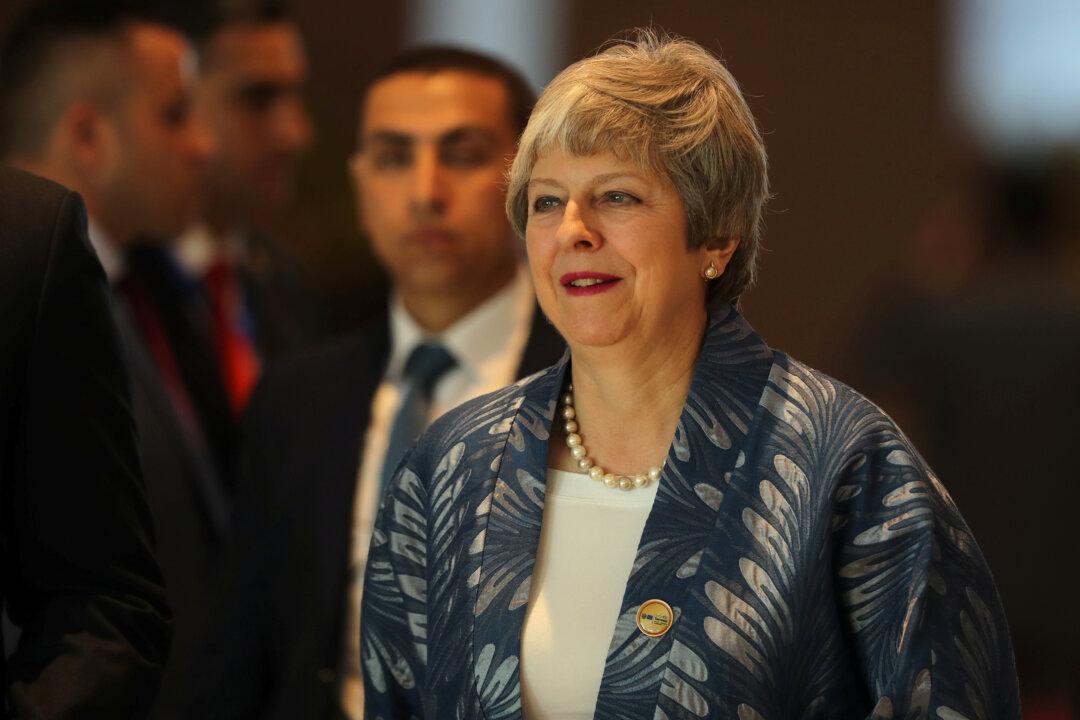SHARM EL-SHEIKH, Egypt—British Prime Minister Theresa May promised on Feb. 24 to offer lawmakers a vote on her Brexit deal by March 12, the latest delay in her attempt to win approval for a plan to ensure Britain’s orderly departure from the European Union.
As the United Kingdom’s labyrinthine Brexit crisis goes down to the wire, May is making a last-ditch effort to get changes to the divorce package but lawmakers may try on Feb. 27 to grab control of Brexit in a series of parliamentary votes.





